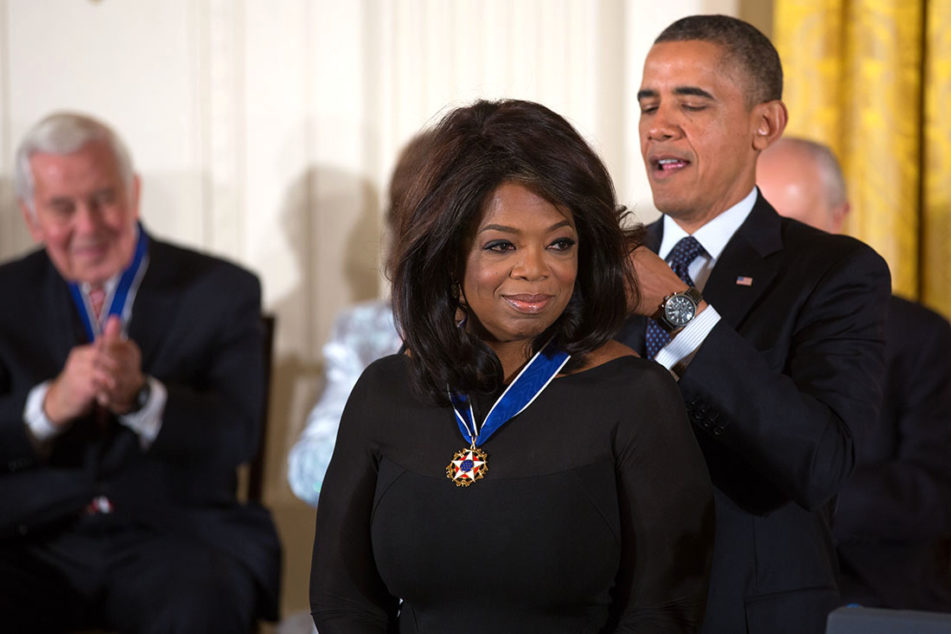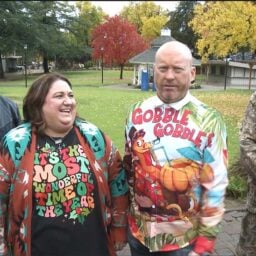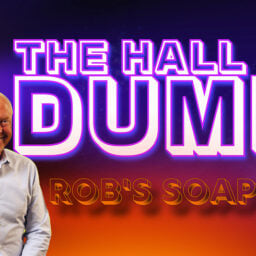Last week, Dawn went on one of her epic rants against snowflakes.
Yes, I know I need to be more specific.
I believe it was when we were discussing the current charge by millennials to ban voicemail (despite the fact that all of us already have the option of disabling it) because unheard messages are intimidating and apparently make people feel anxious. Dawn’s response was her usual level of proper disgust, anger, and disbelief towards, in this case, people scared of audio messages. Her closing argument was something like “have they ever even travelled anywhere where people have real problems? Maybe if they saw real suffering up close and personal they might stop making up things to need safe closets for.” Ok, it probably wasn’t that eloquent coming out of Dawn’s mouth, but you get the idea.
I retorted that such an idea would solve nothing. Not only are these hypocrites the first to tell us about all of the problems in the world already, they’re also the last to truly care. They live in a world where Tweeting a hashtag about the suffering of a group of girls in Africa solves a problem and makes them, (the Tweeter), a hero.
Further, if someone afraid of voicemails were to actually see, first hand, a child clinging to life after a chemical weapons burn in Syria, an African mother walking 5 miles per day to carry the only water she and her family will have, or the suffering of political prisoners in North Korea, they would, quite literally, melt as a human being. That would be it. They would hyperventilate, look for a safe space, and somehow make the suffering of others about themselves, proclaiming that the teenage girl having her clitoris violently removed had triggered them and they now needed a hug.
Enter Oprah.
Oh, sorry. I’ll explain.
Oprah is short for Oprah Winfrey. She used to be somebody. It wasn’t long ago, in fact, that Ms. Winfrey was the most well-known and powerful celebrity in the world. She hosted a daily talk show, people hung on her every word, and she got so big (figuratively speaking) that she only had to go by not only her first name of Oprah, but the single letter of “O.” Alas, she left it all behind to launch a network which has failed at epic proportions and found out that a short time away is all it takes for the world to stop caring about you.
Recently, she has begun to crawl her way back into the narrative by tripling the value of Weight Watchers, becoming a 60 Minutes correspondent, and giving the speech heard around the world at the Golden Globes this year which led to 48 hours of cries of “Oprah 2020,” until she said what we all knew already, “Uh, no thanks.”
Through it all Oprah has done a good job of milking every penny she could out of the desperate housewives who were devastated by her departure from daily television, most notably through her crappy magazine. This month, she struck rhetorical gold. Sadly, of course, it will be ignored and twisted so that no one will learn or recognize what the true message of it should have been.
In a piece called “What I Know For Sure,” published this month, the 64-year-old discusses the ‘human tendency to look for the worst in others,’ which is currently making many people feel quite negatively about the state of the world. While she doesn’t directly address snowflakes, she very easily could have been talking to each and every one of them when it comes to their need to create problems in a world that has plenty, and has actually had much, much worse.
‘I come from a people who endured the worst of times: slavery, Jim Crow, the total absence of civil rights. Times when things were really as bad as they seemed,’ she wrote.
Here’s the problem; this statement will be (and has been) twisted into a series of interpretations other than the most important one. The message we should all take away from this, regardless of what her intentions were, is that we live in a country just 150 years removed from a time when we owned other humans. Closer to modern day reality, we live amongst people like Oprah who, in their lifetimes, had no civil rights, including the right to vote…and use the same water fountain as others…and ride on the same part of the bus as others…and go to the same quality of schools as others…and on and on it goes. Don’t get me wrong, racism isn’t dead and it will never die for it is part of the human condition, but snowflakes today are not living a life remotely close to that lived by a ten-year-old Oprah. And that should be the message received; we have problems, but voicemails aren’t any of them.
Unfortunately, her article has become more about race, and America’s sins, and reparations, and everything else you can imagine that deflects us away from having the perspective that demands we stop making up problems which require 20 minutes of cuddling with a stuffed animal. I don’t claim to know Oprah’s true intention or message, but I did read her entire article and it was rife with lessons that every person should learn as early as possible. To whit:
- You alone responsible for your life, It’s not about anybody else, it’s not about what somebody did to you.’
- if you are a negative person, you get fed from the negativity. And if you’re a positive person, you get fed from the positivity
- Every little mistake has been a chance to grow, I long learned that “I never want to feel like this again” means don’t do what caused the feeling the first time.’
- Even in my worst moments, I’ve always had the good sense to know that however bad things were, they wouldn’t remain so. Everything passes if you learn to hold things lightly,’
- the most important question I think anybody should be asking themselves. Are you living the life you want? That’s a really important question. But life is always waiting on you to answer that question: What do I really want?’
All USDA Prime Grade pieces of advice and wisdom…and all will be ignored so that we can bitch and scream and moan about this year’s Starbucks Christmas Cup.









